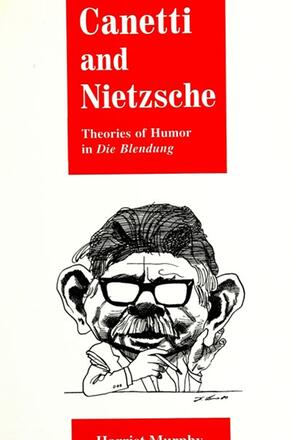
Canetti and Nietzsche
Theories of Humor in Die Blendung
Alternative formats available from:
This first full-length study investigates the profound implications of the peculiarly original sense of humor found in Elias Canetti's single novel--a facetiousness, understood in a Nietzschean sense, as a revolutionary aesthetic.
Description
Now translated into more than twenty-two languages, Die Blendung, known in its English translation as either The Tower of Babel or Auto-da-Fe, has become something of a popular novel. Canetti and Nietzsche is the first full-length study of Canetti's novel to do justice to the profound implications of its peculiarly original sense of humor, one which typically finds its expression in facetiousness. It understands facetiousness, through Nietzsche, as a performance art--an art that equates truth with the wisdom that life should be about the effort we put into creative acts. Examining both the theory and practice of humor, Murphy relates her own theoretical insights to the international debates concerning the influence of political correctness and the liberal Left inside and outside the universities.
Harriet Murphy teaches German and Comparative Literature at the University of Warwick, England.
Reviews
"This book deals with an important novel of a major twentieth-century writer. Murphy's approach effectively combines traditional literary criticism with such contemporary trends as feminist and post-colonial criticism, philosophical and socio-anthropological hermeneutics, and French and Anglo-American deconstruction. It is arguably the most important study of Canetti's work to come out during the last decade. " -- Mihai Spariosu, The University of Georgia
"Murphy's work is a solid piece of scholarship based on an excellent knowledge of the critical field, be it Austrian literature or literature in German or contemporary literature and theory. It is also an original approach to a complex novel written by a young man who many years after the publication of Die Blendung became a winner of the Nobel Prize. Murphy convincingly positions her analysis of Die Blendung in a wide critical context, one with philosophical, sociological, and cultural connotations and references. She shows that in this novel the issues involved concern contemporary human community. Vividly written with a maintained intensity of style as well as with a polemical and challenging stance, Murphy's analysis grounds its reading on a wide critical and political understanding of literary phenomena. " -- Wladimir Krysinski, Universite de Montreal